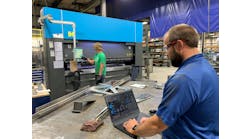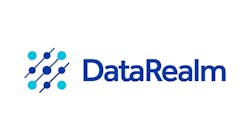Dust Networks has released what it says is the first single-chip solution for the industrial market. The network-ready system-on-chip (SoC) products combine extremely low-power radio technology with the Time Synchronized Mesh Protocol (TSMP) in what the company is calling a "mote-on-chip" (MoC).
According to Rob Conant, Dusts vice president of business development, the new chip reduces power consumption by 80% and increases battery life up to five times. "This is nearly unheard of," he says.
The mote-on-chip products require zero external components and no embedded programming, enabling OEMs to reduce the development time and cost for wireless sensor networking (WSN) solutions. Dust Networks SmartMesh-XD family of products contains the first SoC-based motes and managers in standards-based IEEE 802.15.4 compliant, 2.4 GHz and narrow-band 900 MHz versions.
Dust is not just bundling its own software stack on an existing SoC product, says Harry Forbes, senior analyst at ARC Advisory Group. Rather, it is offering an entirely new chip set that will contain IEEE radios plus and embedded TSMP stack. Not only does the arrangement reduce power consumption, but it also should simplify product development for Dusts OEM customers and reduce costs.
"Power consumption and battery life have been major barriers to wireless sensor network (WSN) adoption in many industrial markets because end users will not accept additional requirements to service their field devices," adds Forbes. "Dusts new SoC products will extend the service life of future industrial WSN products that use TSMP technology. The use of this SoC will shorten time to market, but it also dramatically expands the range of possible applications for Dusts products."
Conant says he sees the SoC as feeding into the drive toward more effective equipment monitoring. "These batteries may last as long as 15 or 20 years. This has been the Holy Grail of wireless sensor technologylow power consumption. As standards emerge, and you see more products coming to market, people will be able to measure more points at 10 times less expense. That will have direct impact on ROI," he says.
Dust already has staked out an important claim in this market. In the HART booth at the ISA Expo in October, a dozen companies representing more than 90% of the process-control market were displaying interoperable technology, and every one of them was using Dust products.



